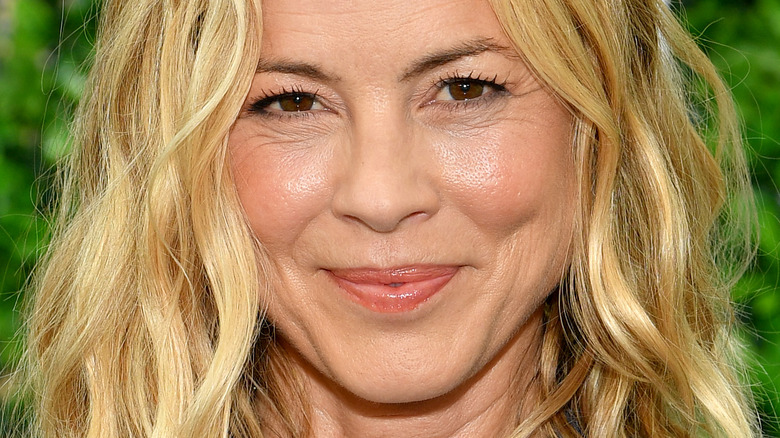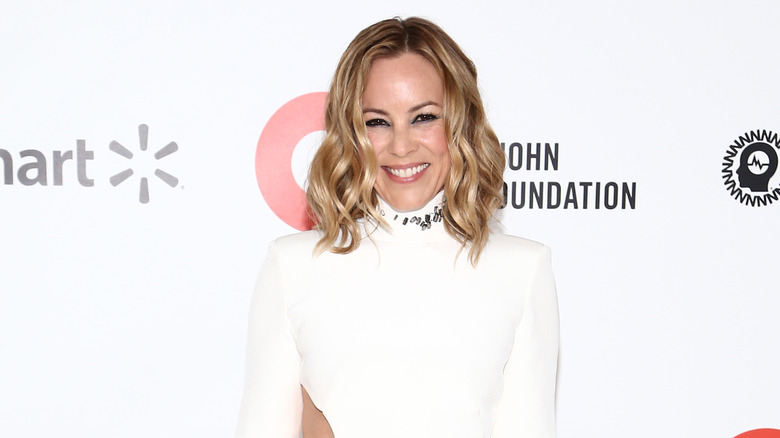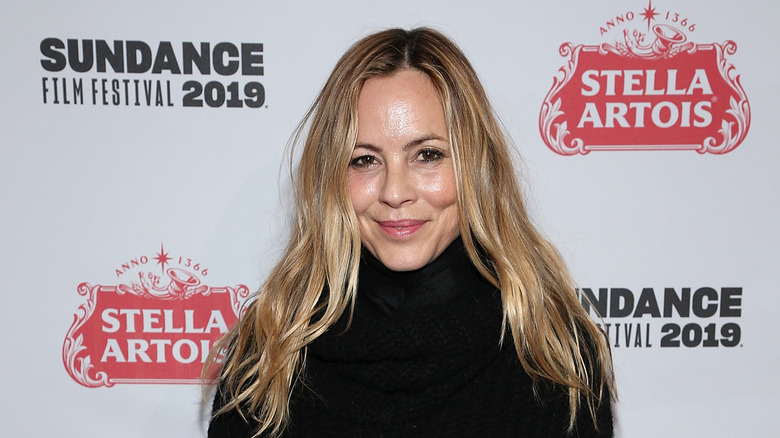Inside NCIS Star Maria Bello's Struggle With Bipolar Disorder
Maria Bello's exit from "NCIS" in its 18th season was a touching point in the plot. She had played Dr. Jacqueline "Jack" Sloane for three seasons on the hit CBS show. When the time came to say goodbye, Sloane seemingly had few regrets about her exit.
"I'm done," Sloane told Special Agent Leroy Jethro Gibbs, played by Mark Harmon. "This is why I want out. This. We chase bad guys. We put them away, and nothing ever changes except for us. Darya risked her life to help me. We're all so twisted we couldn't see that basic act of humanity for what it was. So call it what you want: quitting, running, I don't care. I'm out. I'm done!" her character added, via Deadline. Bello's personal touch to the farewell — a thoughtful Instagram post for Gibbs — showed just how much she cared about the show.
Bello put so much heart into her forensic psychologist character — something which the "Coyote Ugly" star has been known to do — which is precisely why she has drawn a loyal fanbase. The actor has a personal story, too, one that she chose to share in her book, "Whatever...Love Is Love: Questioning the Labels We Give Ourselves." The book speaks volumes about her journey with family, love, and bipolar disorder. Here's more on Bello's journey, her struggle with bipolar disorder, and how it changed her as a person.
Maria Bello has been through 'extremes' with her bipolar disorder
Bipolar disorder affects 5.7 million adults age 18 or older (via NIH). Also referred to as manic-depressive disorder, bipolar can be a rollercoaster of emotions. Per Healthline, it's characterized by extreme mood shifts, and people with this condition can have trouble managing day-to-day tasks at school or work, and have trouble maintaining their relationships.
In Maria Bello's case, the illness ultimate made her humble. "I think that my disease, since I'm medicated, is a gift, because I've gone so far through extremes — from the very bottom to the very top of human emotion and feeling," Bello told Entertainment Tonight in 2015. "I think that I am more empathetic because of it."
Bello has since used her experience with her own mental health condition to add depth to the characters she has portrayed on-screen. In a 2016 interview with The Holland Sentinel, the actor discussed how she unified her life experiences with her work. Speaking on preparing for the role of a depressed and delusional mother in the horror thriller "Lights Out," Bello said, "I was able to use my experience from that (bipolar disorder) and put it on the screen for the first time, remembering what it was to be that person who couldn't get out of bed for three months, to try to understand what it was like to be in that kind of space, not understanding what reality was," she said.
Maria Bello was diagnosed with bipolar disorder in her late twenties
According to NAMI, the average age-of-onset for bipolar disorder is around 25 years, which means that it could take a while for a person to be diagnosed and start a line of treatment. It was about the same with Maria Bello. In a 2016 interview with The Straits Times, Bello spoke about how she was diagnosed and how it changed her life.
"I had it quite young, but wasn't diagnosed till I was 28. Thank God I was or I probably wouldn't be here right now," she told the publication. Speaking on the impact it had on her career, the actor said, "I have the gift of bipolar disorder and having the experience of high highs and low lows and being able to draw from those experiences and showing it on the screen. I show how mental illness affects everyone in the family."
Bello believes that mental health disorders can be challenged through medications. In her book, she talks about her father's alcohol addiction and her suicidal thoughts before drugs controlled her condition. "Things that we used to see as diseases, with newer medications, are really like superpowers. I've experienced things that most people don't experience. Thank God that people don't have to experience the lows, but for people to get to feel it through my acting is a gift," she told the outlet, adding that she is in the "right profession to have it (bipolar disorder)."
If you or anyone you know is struggling with addiction issues, help is available. Visit the Substance Abuse and Mental Health Services Administration website or contact SAMHSA's National Helpline at 1-800-662-HELP (4357).



